 Some folks who follow the blog, or connect with me over on social media, know about my Write Like Hell program. It’s a year-long program of coaching and accountability designed to get participants supercharged in their progress toward being a published and/or professional writer.
Some folks who follow the blog, or connect with me over on social media, know about my Write Like Hell program. It’s a year-long program of coaching and accountability designed to get participants supercharged in their progress toward being a published and/or professional writer.
I was taught early on to lead by example, so here are my goals for the program. I’ll post at the end of each month with my progress, so the whole damn world knows whether or not I’m sticking to it.
Setting Effective Goals
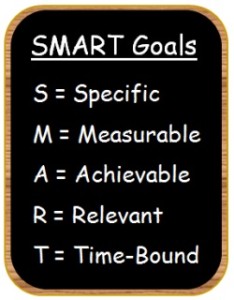 Before I get into the goals themselves, I want to address why the goals look like they do. It’s based on a few rules for making goals as motivational and effective as possible. I’ve posted on this before (and have a new post coming soon), but here’s some key guidelines you’ll see in action in this post:
Before I get into the goals themselves, I want to address why the goals look like they do. It’s based on a few rules for making goals as motivational and effective as possible. I’ve posted on this before (and have a new post coming soon), but here’s some key guidelines you’ll see in action in this post:
- They must use numbers: results must be measurable by numbers, and there must be a specific deadline for each goal. Without numbers, goals are just ideas you’d like to see happen.
- They must be in my control: I’ll never set the goal of “sell 10,000 copies in a month” because I can’t make that happen. Instead, I’ll set the goal of performing Acts of Marketing that are likely to produce those sales. I can’t control who buys my books. I can control whether or not I get off my ass and chase those sales.
- They must be realistic: if I don’t believe I can accomplish the goals I set, I’ll never really be motivated to pursue them. Some folk disagree, saying they can chase an impossible dream and be happy with what they do get. To me, that’s just starting the process with permission to not reach your goals.
One last rule for setting effective goals: I must give a damn. If the goals don’t serve something I care passionately about, then I’m not going to make the sacrifices necessary to accomplish them. Every goal I set leads me toward someplace I deeply want to be. To that end…
The Long Game
I start any goal-setting session for myself or with my clients by thinking about where I want my goals to take me. Here’s how I did it for myself.
First, know that the Write Like Hell program has each person identify five categories of goals:
- Writing
- Career
- Relationships
- Health/Fitness
- (Bonus/Wild Card)
For each of those, I looked at where I am, and where I want to be in five years.
Writing & Career: I currently make most of my money from work-for-hire arrangements like ghostwriting, online content, and magazine articles. In five years, I want to make my money exclusively off my own writing (plus a few assignments in the role-playing game industry, because I love doing those).
Relationships: I currently have good relationships with my wife, kids, and friends. One of the kids is transitioning to living out of the house (he’s 18 and off to seek his fortune). I also have a bad habit of going long spans without connecting with friends who are off my immediate radar, if you know what I mean. In five years, I want those relationships with my wife and kids to be just as strong, and to strengthen my relationships with friends and family not in my daily contact sphere.
Fitness: Between being married, getting busy, and a couple of injuries I’ve let myself go a bit in the past two years. In five years, I want to be back in 100 push up, 5 mile, flat belly, black belt shape. I also want to knock the rust off much of my kenpo, and achieve a purple belt in brazilian jujitsu.
(Bonus) Self-Publishing: I currently earn between $150 and $250 a month from my self-published works, plus $4,000-$5,000 from crowdfunded projects. In five years, I would like that number to equal a total of $60,000 a year.
Now that I have my five-year goals, to which I am attached, I can set my one year goals and divvy out my promises to myself for November.
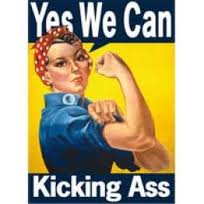
Writing Goals
By September 30, 2019, I will have finished three YA novels for traditional publication. These will include:
- Bushido Chronicles 2: Fighting Upstream, turned in to my publisher Not a Pipe by November 30, 2018.
- Rio Sangre, finished and sent to at least 50 agents (or accepted by an agent) by March 30, 2019.
- Bushido Chronicles 3: Title Pending, turned in to my publisher Not a Pipe by Aug 31, 2019.
For November, my goal is to finish the penultimate draft and receive feedback notes by November 30th.
Career/Marketing Goals
By September 30, 2019, I will have substantially increased my social media following and mailing list subscriptions through the following initiatives:
- Completed and set up an implementation schedule of Russell Nohelty’s Sell Your Soul course by Nov 30, 2018.
- Directly invited a total of 1,000 writers (including people at speaking engagements) to my Iron Writer Facebook Group by Sep 30, 2019.
- Engaged in 24 public announcements of my Iron Writer Facebook Group by Sep 30, 2019.
- Directly invited a total of 2,000 people to join my two mailing lists by Sep 30, 2019.
- Engaged in 48 public announcements of my two mailing lists by Sep 30, 2019.
For November, I have the following goals. Finish the Sell Your Soul course by Nov 16. Create an implementation calendar for same by Nov 30. Invite 10 people each a week to join my Iron Writer Facebook Group, my Break From HOKAIC writers’ newsletter, and my Martial Arts Social Media Pro newsletter. Announce Iron Writer and both newsletters individually on Facebook twice each. Make 12 contacts for publicity opportunities around my communities.
Relationship Goals
By September 30, 2019, I will have taken action to enrich my relationships with the people in my life. These actions will include:
- 12 date nights and 4 retreats with my lovely and talented wife by Sep 30, 2019
- Going on 24 excursion adventures with my youngest son Gabriel by Sep 30, 2019
- Made 100 quality check-ins with my oldest son DJ by Sep 30, 2019
- Hosted 20 family dinners at my home by Sep 30, 2019
- Made 300 quality check-ins with friends and family who aren’t in my day-to-day connection sphere by Sep 30, 2019.
For November, that means a date night with Rachel, 2 excursions with Gabriel, 8 check-ins with DJ, 2 family dinners, and 30 check-ins with other people I care about.
Fitness Goals
By September 30, 2019 I want to be back at my “fighting weight” of 190 pounds and achieve flawless execution of 6 of my kenpo katas. Toward that end, I will perform the following:
- Walk, run, bike, or swim a minimum of 150 hours.
- Perform 15,000 repetitions of pushups, situps, and superman twists.
- Perform physical therapy for my left shoulder and right elbow so I’m off the disabled list.
- Perform 1,200 repetitions of various katas.
For November, my plan is to perform 10 hours of cardio, perform 1,000 repetitions of the calisthenics, engage in daily PT stretching, and perform 100 repetitions of short one kata.
Bonus Goal: Self Publishing
Moving toward self-publishing success means pushing my Random Encounters series and my Kickstarter presence. By Sep 30, 2019, I will have:
- Self-published 5 volumes of Random Encounters, Season 2.
- Self-published the print anthology edition of Random Encounters, Season 2.
- Delivered 9 editions of a Random Encounters newsletter.
- Successfully Kickstarted the Itty Bitty Writing Space anthology.
- Successfully Kickstarted one other self-publishing project, exact nature to be determined.
For November, I will achieve the following. Establish a template and style for the RE newsletter. Release Episode 1 of RES2.
 This Ain’t Your Mom
This Ain’t Your Mom
It’s not easy. It’s not cheap. Write Like Hell was initially inspired by Tom Callos’s now defunct Ultimate Black Belt Test. I completed that program three times, and it utterly changed my paradigm for what I’m capable of accomplishing in a year.
So I’m pushing hard because my family deserves to have me at my peak, physically, emotionally, and with my career.
If you’d like to know more about Write Like Hell, email me or find me on Facebook. We’re full up for enrollment this year, but you can get on the waiting list.
Till next time, then. What are your goals for this month?
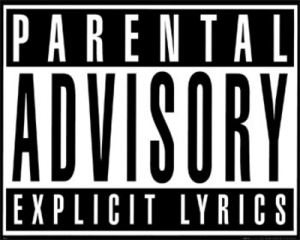 Folks who know me already realize I’m a huge metal head. I cut my teeth on Sabbath and Iron Butterfly, saw everybody from Iron Maiden to Anthrax to Faith No More in high school, played bass in a short-lived metal band, and have continued to love the metal well past the age benighted souls might have suggested I outgrow the tendency.
Folks who know me already realize I’m a huge metal head. I cut my teeth on Sabbath and Iron Butterfly, saw everybody from Iron Maiden to Anthrax to Faith No More in high school, played bass in a short-lived metal band, and have continued to love the metal well past the age benighted souls might have suggested I outgrow the tendency.

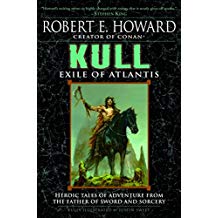
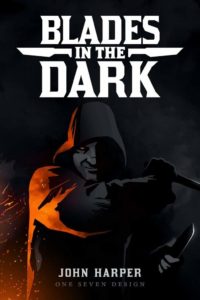
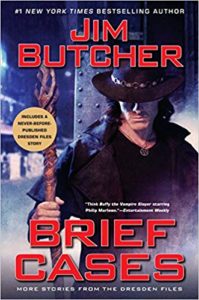
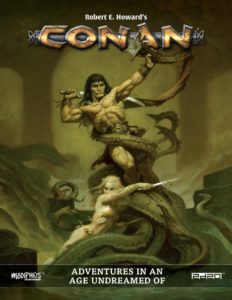
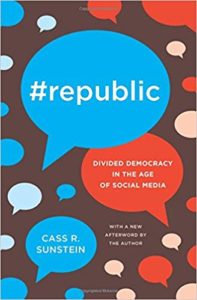
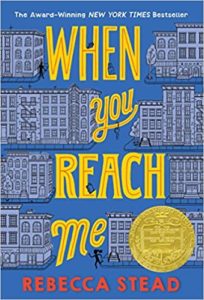
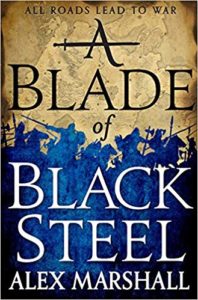
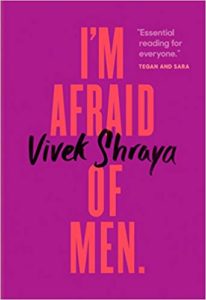
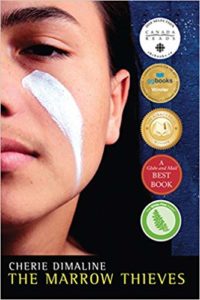
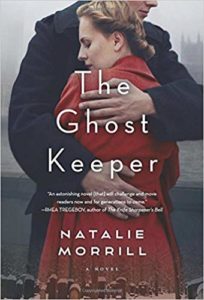
 We all have desires for our writing careers, whether it’s making $150,000 a year from home or getting that novel published. The thing is, most writers don’t make those desires real goals.
We all have desires for our writing careers, whether it’s making $150,000 a year from home or getting that novel published. The thing is, most writers don’t make those desires real goals. Keeping score is a matter of tracking your progress toward all of your goals. Metrics are how you keep score. They are ways of measuring your progress to keep yourself on track. I learned about metrics during my time running a martial arts studio. With 120 students and a staff of over 20 employees and volunteers, I had a lot of metrics to track. In my simpler life as a freelance writer, I track only a few.
Keeping score is a matter of tracking your progress toward all of your goals. Metrics are how you keep score. They are ways of measuring your progress to keep yourself on track. I learned about metrics during my time running a martial arts studio. With 120 students and a staff of over 20 employees and volunteers, I had a lot of metrics to track. In my simpler life as a freelance writer, I track only a few.
 A few years back, I did a series of blog posts for a medium-sized business in Los Angeles. As we were wrapping up the deal, my client told me I beat out 150 other applicants to get the gig. I asked him if he’d mind telling me how I floated to the top of that heap. He said that 98 percent of the applicants obviously hadn’t read the entire job description, done basic research into his industry, provided work samples or even bothered to spell-check their cover letters.
A few years back, I did a series of blog posts for a medium-sized business in Los Angeles. As we were wrapping up the deal, my client told me I beat out 150 other applicants to get the gig. I asked him if he’d mind telling me how I floated to the top of that heap. He said that 98 percent of the applicants obviously hadn’t read the entire job description, done basic research into his industry, provided work samples or even bothered to spell-check their cover letters. Some folks who follow the blog, or connect with me over on social media, know about my
Some folks who follow the blog, or connect with me over on social media, know about my  Before I get into the goals themselves, I want to address why the goals look like they do. It’s based on a few rules for making goals as motivational and effective as possible. I’ve
Before I get into the goals themselves, I want to address why the goals look like they do. It’s based on a few rules for making goals as motivational and effective as possible. I’ve 